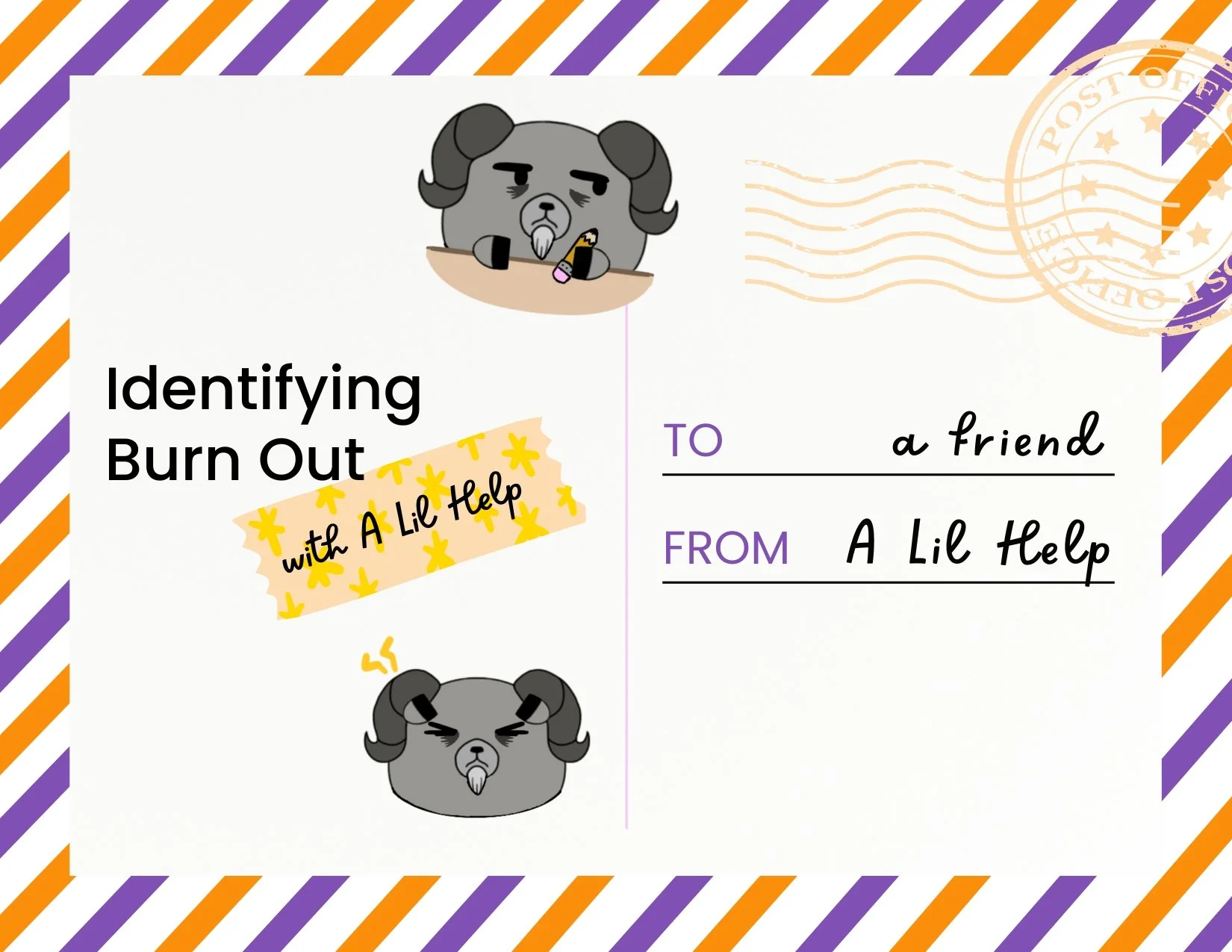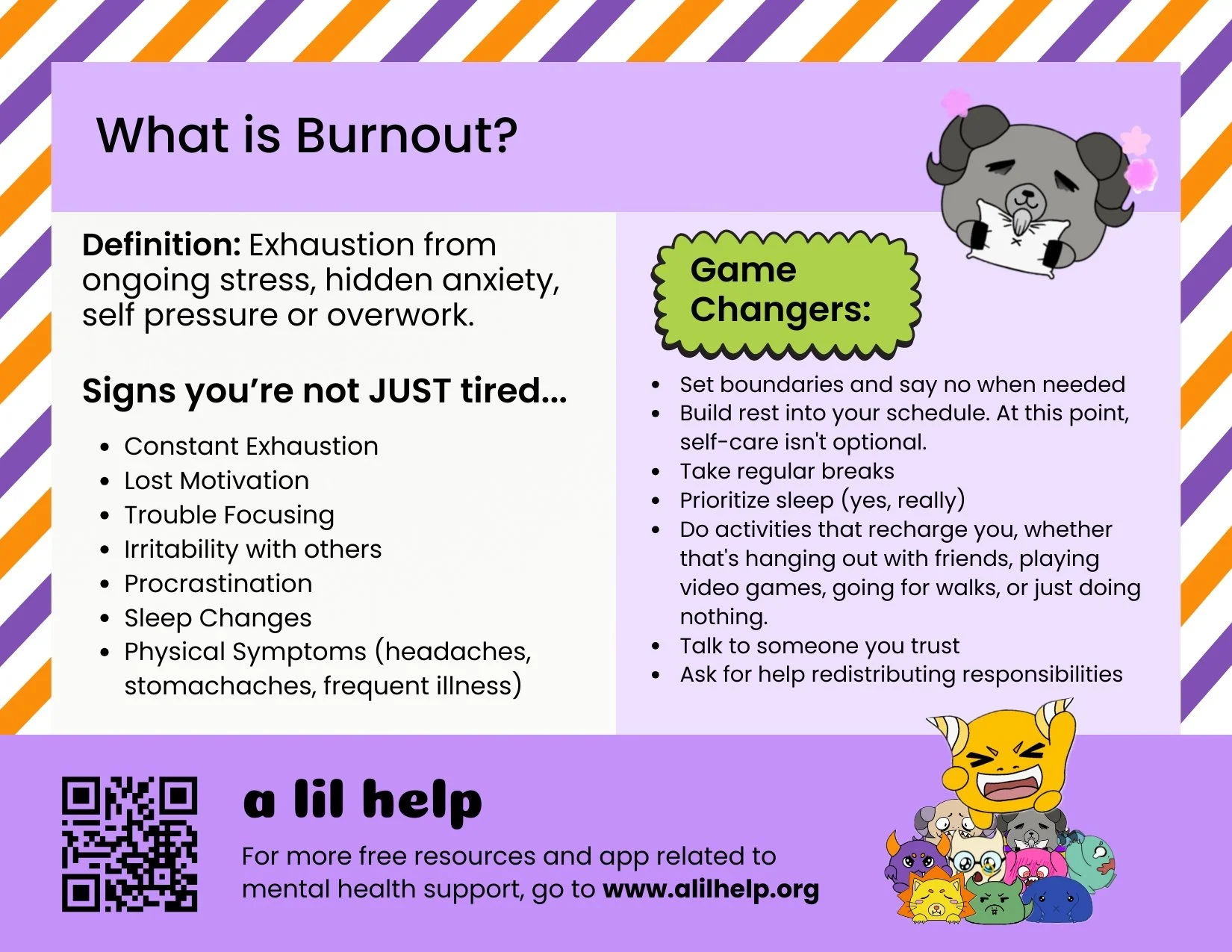

Remember
Burnout is your body telling you that you need a break too!
What is Burnout?
Written by Stella W.
Have you ever felt completely drained, like you're running on empty no matter how much sleep you get? That might be burnout.
Why does this happen?
Burnout is more than just feeling tired after a long day. It is a form of mental, emotional, or physical exhaustion caused by ongoing stress, hidden anxiety and self-pressure or overwork. For students, burnout often shows up as academic burnout (schoolwork feels impossible, even if you used to enjoy it) or emotional burnout. Your feelings feel “maxed out,” like you have nothing left to give. When you’re juggling classes, homework, sports, clubs, and trying to keep up with friends or family expectations, your brain can hit a point where it just can’t keep going at the same pace.
Myth Buster Alert
✖️Myth: Burnout is just being tired.
✔️Fact: It’s much deeper than that. Burnout affects mood, productivity, and overall health.
Why This Matters
Common signs of burnout include:
💜 Constant exhaustion doesn’t improve with rest aka totally drained
💜 Irritability with friends and family and snapping at them easily
💜 Lack of motivation to do things you once enjoyed or thoughts of “I don’t care anymore”
💜 Procrastination because you don’t have energy to start
💜 Trouble focusing, or feeling overwhelmed by tasks that used to feel manageable
💜 Changes in your sleep patterns (sleeping too much or struggling to fall asleep)
💜 Physical symptoms like headaches, stomachaches, and getting sick more often
If you're feeling drained, and finding that everything feels like a chore, you're not dramatic or lazy. You might be experiencing legitimate burnout that deserves attention.
How to Deal
The good news? Burnout is preventable and recoverable, but it requires intentional action. Start by setting boundaries: it's okay to say no to extra commitments when your plate is already full. Build rest into your schedule like it's a class you can't skip. At this point, self-care isn't optional. It's essential for your health and success. Take regular breaks during study sessions, prioritize sleep (yes, really), and make time for activities that genuinely recharge you, whether that's hanging out with friends, playing video games, going for walks, or just doing nothing.
If you're already experiencing burnout, talk to someone like a friend, coach, parent, school counselor, or trusted adult, about redistributing your responsibilities. Sometimes recovery means temporarily stepping back from activities or asking for deadline extensions.
The Bottom Line
Remember, taking care of yourself isn't giving up but the smartest investment you can make in your future to stay healthy.
DISCLAIMER: This article is for informational and educational purposes only, from publicly available information. It is not medical or professional advice. If you’re struggling, talk to a trusted adult, counselor, or healthcare professional.
